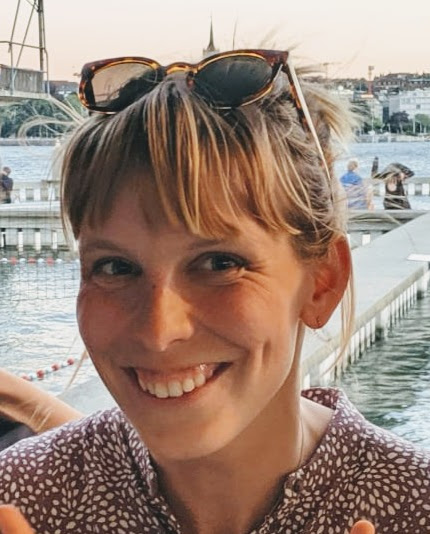Karolina Liska, MSc, PhD
Senior Researcher
Department of Physiology, Second Faculty of Medicine, Charles University
Scientific background
Karolína Liška, MSc, PhD is an early-career researcher at the Department of Physiology, Second Faculty of Medicine, Charles University. She received her PhD in Neuroscience in which she studied the role of circadian regulation of animal physiology, including brain regions involved in learning and memory. She gained expertise in both in vivo and in vitro techniques, immunohistochemical and molecular biology methods in the process. A highly productive collaboration with the team of Prof. Martin Ralph at the University of Toronto 40 was also coordinated by her. Further, she undertook an internship at the laboratory of Prof. Jihwan Myung at Taipei Medical University in Taiwan. There she gained valuable experience with cutting-edge in vitro techniques.
After the completion of her PhD programme, she joined the Department of Physiology at Second Faculty of Medicine. Here she has gained expertise with microsurgery and recording physiological functions in vivo in a chronic epilepsy model. The acquired data required implementation of signal processing, for which she set up a successful collaboration with mathematicians and biomedical engineers. She also coordinates the clinical part of the SUDEP project with neurologists from Motol Hospital Epilepsy Center, which involves the analysis of cardiovascular and respiratory functions in people with drug-refractory epilepsy who undergo video-EEG monitoring.
Research interests
In her research, Karolína Liška, MSc, PhD focuses on the underlying mechanisms of epilepsy. Her area of particular interest is SUDEP (Sudden Unexpected Death in Epilepsy). This devastating phenomenon occurs unexpectedly in some epilepsy patients, and the aim is to uncover the underlying mechanisms and identify potential biomarkers that could predict its occurrence. To address this, she explores the effects seizures have on vital physiological functions, such as the cardiac and respiratory function and its modulation. By understanding the factors contributing to SUDEP, she hopes to develop preventive strategies and potential therapeutic interventions which would improve patient outcomes.
Selected publications
Liška K, Pant A, Jefferys JGR. Diaphragm relaxation causes seizure-related apnoeas in chronic and acute seizure models in rats. Neurobiol Dis. 2024 Nov 14;203:106735. https://doi.org/10.1016/j.nbd.2024.106735
Liška, K., Dočkal, T., Houdek, P., Sládek, M., Lužná, V., Semenovykh, K., … & Sumová, A. (2023). Lithium affects the circadian clock in the choroid plexus–A new role for an old mechanism. Biomedicine & Pharmacotherapy, 159, 114292. https://doi.org/10.1016/j.biopha.2023.114292
Liška, K., Sladek, M., Houdek, P., Shrestha, N., Lužná, V., Ralph, M. R., & Sumova, A. (2022). High Sensitivity of the Circadian Clock in the Hippocampal Dentate Gyrus to Glucocorticoid-and GSK3-Beta-Dependent Signals. Neuroendocrinology, 112(4), 384-398. https://doi.org/10.1159/000517689
Liška, K., Sládek, M., Čečmanová, V., & Sumová, A. (2021). Glucocorticoids reset circadian clock in choroid plexus via period genes. J Endocrinol, 248, 155-66. https://doi.org/10.1530/joe-20-0526
Sládek, M., Liška, K., Houdek, P., & Sumová, A. (2021). Modulation of single cell circadian response to NMDA by diacylglycerol lipase inhibition reveals a role of endocannabinoids in light entrainment of the suprachiasmatic nucleus. Neuropharmacology, 185, 108455. https://doi.org/10.1016/j.neuropharm.2021.108455
Čečmanová, V., Houdek, P., Šuchmanová, K., Sládek, M., & Sumová, A. (2019). Development and entrainment of the fetal clock in the suprachiasmatic nuclei: the role of glucocorticoids. Journal of Biological Rhythms, 34(3), 307-322. https://doi.org/ 10.1177/0748730419835360
